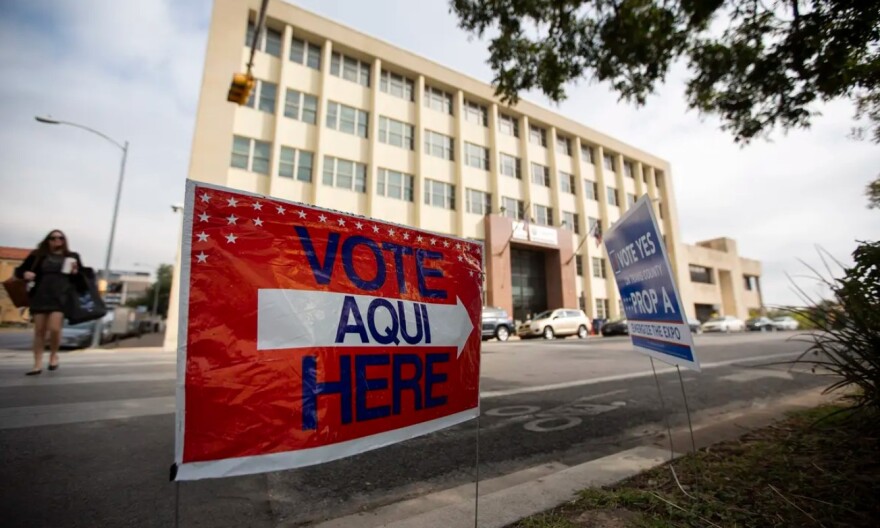A state district judge on Wednesday said he will move forward with an order easing restrictions for voting by mail in Texas in light of the new coronavirus pandemic.
After conducting a video conference hearing in a lawsuit filed by state Democrats and civic organizations, Judge Tim Sulak told the attorneys he will issue a temporary injunction allowing all voters fearful of contracting coronavirus if they vote in person to ask for a mail-in ballot under a portion of the Texas election code allowing absentee ballots for voters who cite a disability. His ruling, which is almost certain to be appealed by the state, could greatly expand the number of voters casting ballots by mail in the upcoming July primary runoff elections.
Until now, voting by mail has been fairly limited in the state. Texans seeking an absentee ballot that they can fill out at home and mail in had to be 65 years or older, have a disability or illness, be out of the county during the election period or be confined in jail.
The Texas election code defines disability as a “sickness or physical condition” that prevents a voter from appearing in person without risking “injuring the voter’s health.” Citing ambiguity in state law regarding what qualifies as a disability, Sulak agreed that qualification can currently apply to any voter in Texas. His official order has not yet been issued.
The debate over expanding voting by mail during the coronavirus pandemic had emerged as the most recent political fault line between Texas Democrats and Republicans, who have opposed easing qualifications for mail ballots.
The ruling was a temporary win for the coalition of plaintiffs who brought the legal challenge asking the court for clarification of the election code. The lawsuit was first filed by the Texas Democratic Party and two individual voters under the age of 65 who would seek to vote by mail given the state of the coronavirus outbreak. They were later joined by a third individual voter and nonprofit organizations focused on civic engagement, including the League of Women Voters of Texas and MOVE Texas.
“Much like the public health experts tell us we have to reduce the curve, reduce the demand on hospital beds and ventilators, we too have to reduce the demand on in-person voting as a matter of practicality, as a matter of public health, and fortunately state law allows for that,” Chad Dunn, a lawyer for the plaintiffs said in opening arguments.
During the hearing, those plaintiffs offered up two expert witnesses — a local doctor and an epidemiologist — who testified to the risks for transmitting the virus that would come with in-person voting. Meanwhile, the risks tied to mail ballots are “negligible,” said Catherine Troisi, an epidemiologist with the University of Texas Health Science Center at Houston School of Public Health.
The Texas attorney general’s office, which intervened in the case, argued against the expansion, claiming the vote-by-mail disability qualifications apply to voters who already have a “sickness or physical condition” and not those who fear contracting a disease “whether it be COVID-19 or the seasonal flu.”
Just as the hearing was wrapping up, Texas attorney general Ken Paxton made public an “informal letter of advice” that further teed up what is expected to be a drawn out court battle over expanding voting by mail ahead of the runoffs and the November election.
Paxton stated that an individual’s sole fear of contracting the virus was not enough to meet the definition of disability to qualify for a mail ballot, and that those who advise voters to apply for a mail ballot based on that fear could be criminally prosecuted.
The Texas Tribune provided this story.



